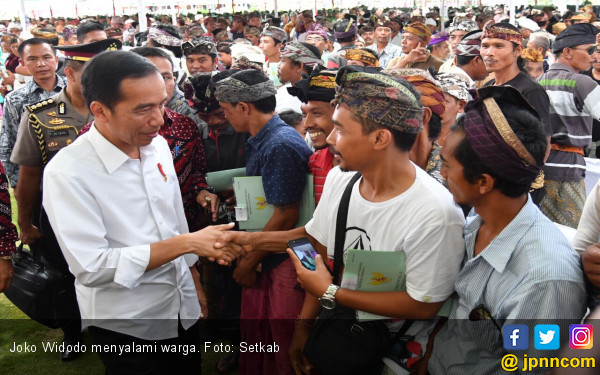Aggressive Government Overcomes Poverty and Social Inequality
By: Alfisyah Kumalasari) *
The ongoing social life in society will certainly affect the emergence of social change. Social interaction and social development that do not work properly will certainly cause problems such as social inequality which can lead to many social problems such as poverty.
According to Roichatul Aswidah – Social inequality is the impact of the process of economic growth. Whereas according to Andrino A. Chaniago, social inequality is the impact of development which only focuses on the economic field without being balanced by the social sector.
From this understanding, we can conclude that social inequality is a social problem where there is injustice in society due to the uneven development process, especially in the process of economic growth.
The problem of social inequality is common in various countries including Indonesia. Social inequality is one of the major tasks faced by the Indonesian government in an effort to improve people’s welfare. In general, a lot of effort can be made to reduce the level of social inequality in the community, some efforts have also been tried by the Indonesian government.
But to overcome social inequality can not be in a short time, it is because, the problem of social inequality requires a clear and detailed strategy to produce a maximum solution.
There are several examples of social inequality that arise in society, such as discrimination, where discrimination will only benefit one party and harm the other. One of the impacts caused by discrimination is the emergence of a sense of injustice among citizens.
Besides that, another example of social inequality is economic domination. In Indonesia, the example of social inequality that is most easily seen is economic dominance. This condition is due to the uneven economic development process, where Java dominates the economy while other regions such as eastern Indonesia are still fairly underdeveloped or underdeveloped.
Even so, the existence of social inequality itself has a positive impact, namely spurring areas that are still lagging behind to develop development in order to compete with other countries. The negative impact, this can lead to social jealousy and injustice in society.
Following up on the issue, President Joko Widodo once revealed that the government continues to strive to improve people’s welfare. A number of steps were taken to achieve this.
The former Governor of DKI Jakarta also said, to be able to prosper, we want to prosper together, prosper together. For this reason, the Government not only pays attention to large businesses, but also focuses on MSMEs and the bottom 40 percent of the population.
To target 40 percent of the lowest levels of society, the government also runs the Agrarian Reform and Social Forestry program, as well as increasing access to capital for ultra micro businesses, micro businesses and small businesses.
In addition, the government also guarantees social protection, where the government seeks to maintain the stability of prices of basic commodities. In addition, the Family Hope Program (PKH) was also proclaimed to 10 million beneficiary families, and reformed the food assistance system into a non-cash assistance program.
This is done so that the social assistance provided by the government is more targeted and the coverage will be increased to 15.6 million beneficiaries by 2019.
Previously, the Central Statistics Agency (BPS) recorded the poverty rate of the Indonesian population as of March 2018 at 9.82 percent. This figure is the lowest number since the era of the monetary crisis that hit Indonesia in 1998 ago, where the poverty rate in Indonesia reached 24.2 percent.
Of course we should be proud of the poverty rate that was just released by BPS. Because the poverty rate is below 10 percent. This certainly is something special, because the poverty rate is the lowest poverty rate in history.
In addition, the government also facilitated the licensing process for entrepreneurs and small and medium businesses, and even the UMKM tax was cut to 0.5 percent. This certainly spurred the enthusiasm of young entrepreneurs to work and certainly will reduce unemployment.
Jokowi’s government also often invites business people to meet with him. At that time he also invited coffee shop entrepreneurs to the palace. After tasting the coffee made from the nation’s children, Jokowi also said that Indonesian children’s coffee concoctions were not inferior to coffee from abroad. .
) * The author is a sociopolitical observer
